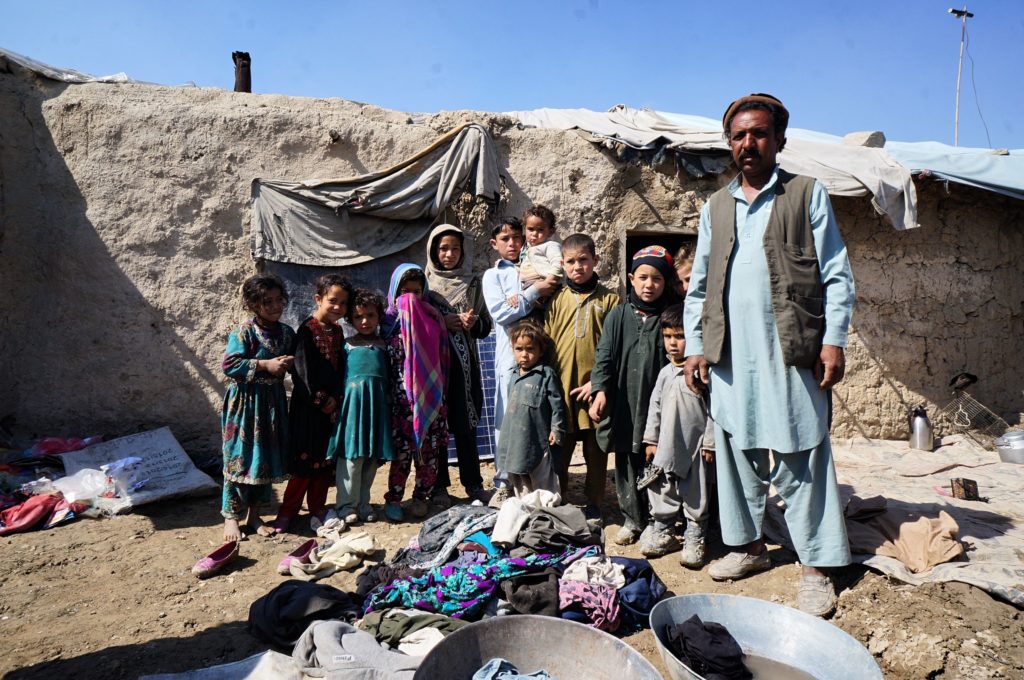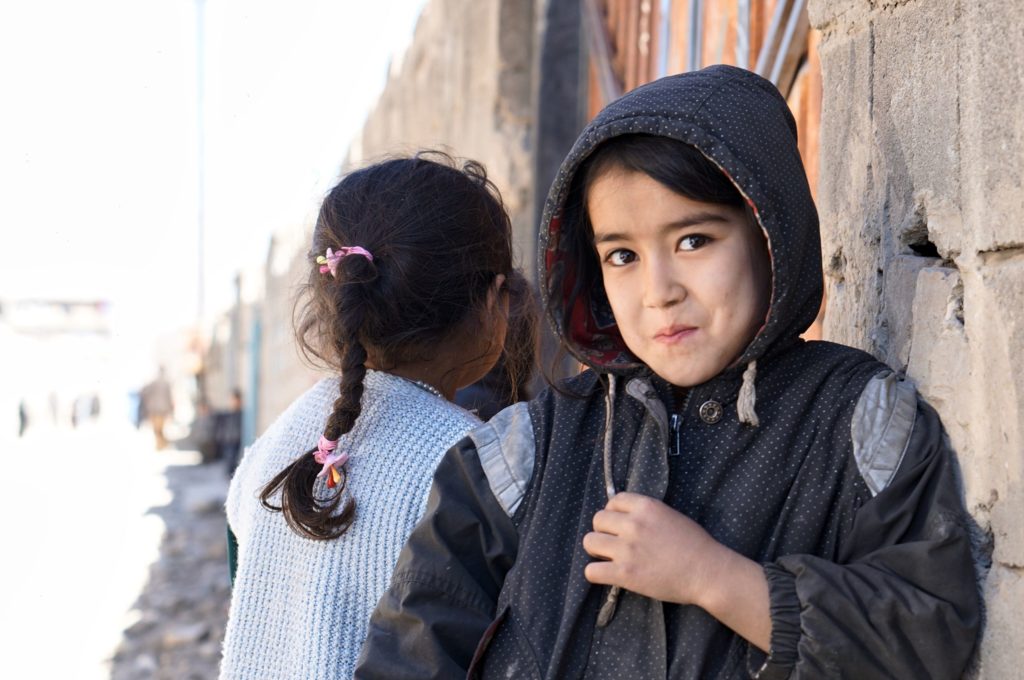The Fall of Kabul – a Peace Imagined
By Mark Isaacs
On Sunday morning, just two days ago, Khalid woke up at dawn and fled his home in the mountains of central Afghanistan.* The Taliban had invaded the region and Khalid was terrified of being targeted. As a member of the Hazara ethnic group, a community which has been particularly persecuted by the Taliban, and a person who performed peace-building work with the international community, Khalid had good reason to think the Taliban would want him dead. A few days earlier he had received a call from an old acquaintance asking after him and his work. This acquaintance had recently declared himself a member of the Taliban.
Khalid had no choice but to run. He gathered the documents he would need to assist him to leave the country and seek asylum abroad, documents that proved his association with foreign organisations and could be used against him if he was caught. He arranged for a car to take him, his mother and several other neighbours to Kabul. His other family members including his brothers and sisters escaped into the mountain passes like so many others had done in the decades of conflict before. His colleagues who dared not risk the road to Kabul went into hiding.

By this time, the Taliban controlled the majority of the country and were circling in on the capital. On the way, Khalid and his mother were stopped by Talib soldiers who began to question the passengers. If the soldiers found his papers, Khalid would be killed. His mother and the other women in the car were wearing burqas which were suffocating but protected them from the suspicious gaze of the soldiers.
The interrogation was interrupted by gunfire. The Talib soldiers controlling the road were being attacked by Afghan national forces. Armed men rushed to join the battle until Khalid’s car was surrounded by roughly 200 fighters. An airstrike decimated the area. Dismembered bodies littered the road. Legs, hands and unidentifiable pieces of meat were strewn across their path. The battle lasted twenty minutes and in the aftermath the Talibs let the travellers go.
Any relief from surviving the gunfight quickly dissipated when they reached Kabul, a city under siege. Taliban forces and the Afghan national army were fighting in various parts of the city. Gunfire could be heard at all hours of the day. The fall of the national government was imminent. Up until Sunday people from all over the country had been seeking refuge in Kabul. Displaced people with nowhere else to go were sleeping on the street. Now they were forced to flee once again.
The roads were clogged with traffic. Everyone was in a rush, but the cars moved only inch by inch. Robberies and violence had made the streets unsafe. The lines to various embassies were hours long.
Hundreds of people stormed the Kabul airport believing that US forces could evacuate them. People grappled in the crowd, punching, yelling, kicking, pulling, desperate to get to the front of the line. It proved to be a false rumour. The few military airplanes remaining at the airport were surrounded by US soldiers who fired guns into the air in order to intimidate and deter the swelling crowd. The departing foreigners were taking very few people with them. The avenues for escape were quickly closing. A desperate few climbed onto a departing plane, eventually falling to their deaths. The day Khalid and his mother arrived in Kabul seeking refuge, the Taliban took control of the city.
The speed of the Taliban’s assault and the capitulation of the Afghan national forces have taken most people by surprise. In June, US intelligence assessments said the Taliban would seize Kabul in 6 to 12 months. Two weeks ago, the US military revised that prediction and said the capital could fall in 30 to 90 days. Few people thought that two decades and trillions of dollars of international involvement would fall apart so quickly.
The Taliban promised no retribution would be enacted upon those who supported the international occupation, but this is already being refuted. Afghans on the ground report that after seizing districts and cities, the Taliban have been executing individuals who have collaborated with foreign forces, whether military or civilian.
As they moved across the country, the Taliban performed targeted killings of journalists and civil society activists. Some reports suggest that women are being married off to jihadists. Talibs are scouring the Internet searching for Afghans who have been involved with the international community. Those who live abroad are fearful for their families who remain behind. Once the Taliban took control of Kabul, some citizens revealed themselves to be Talib supporters. Now there are fears they have been acting as spies secretly collecting information.
“There are Taliban spies everywhere,” Khalid says.
All of this occurs in the backdrop of severe drought, food insecurity, economic collapse, and the COVID-19 pandemic. There are grave fears of famine, massacre and genocide.
“Afghanistan is worse than it has ever been,” Khalid says.
This is what has become of the international community’s promises of peace, prosperity and freedom.
The rapid blitz has meant many people are trapped, unable to leave. Financial institutions are closed. People can’t withdraw money. Those who have money are trying to leave the country, but the roads are controlled by Taliban forces and visas to safe countries are difficult to come by. Those who can’t leave are in hiding. The airports are closed and evacuation from Afghanistan is looking more and more unlikely. Despite the dangers of travel, refugees are spilling across borders into the neighbouring countries of Iran, Pakistan, Tajikistan and Uzbekistan.

Amidst the devastation and destruction, there is a keen sense of abandonment. Those who bought into the dreams of freedom and equality have now been left exposed. For the past years of conflict, thousands of Afghans who fled to Europe were sent back to danger. Only in the past weeks have European countries started to temporarily halt deportations, but even that is a contentious issue in the European Union. The question is will European countries and the US open their borders and expand their refugee programs to accept Afghans? Or will they turn their backs on their failed experiment and the people they left behind?
It has been twenty years since Australia joined the US in Afghanistan. Now that “Operation Enduring Freedom” has collapsed, immediate action is needed to save as many lives as possible. There is a narrow window of opportunity to assist.
Afghan community leaders and Australian NGO and refugee advocacy groups have moved swiftly to create a list of necessary action points which is listed below. What is clear is that the Australian government needs to offer additional refugee resettlement places for Afghan refugees immediately and facilitate the process of evacuating Afghans to safety. It needs to expand family repatriation programs for Afghans living in Australia so they can assist their families to flee. Until now people arriving by boat were denied that opportunity. Within Australia, 53 Afghan refugees remain in long-term detention and thousands more hold temporary protection visas. It’s now clear that these refugees will not be able to safely return to Afghanistan and they should immediately be allowed to live in the community and be offered permanent protection visas.
The last time the Taliban was in power, John Howard’s government sent Afghan refugees to prisons on Nauru and Manus Island. This time Australia has to do better.
You can help by contacting your local Federal MP now, asking them to urge the Morrison Government to:
- Do everything possible in the coming days to evacuate people who are at grave risk within Afghanistan, including those who have worked for or assisted the Australian Government and Australian organisations (including the embassy, armed forces, NGOs and media), human rights defenders and women and girls whose lives and security are under great threat.
- Urge governments in the region to keep borders open for people trying to flee persecution in Afghanistan, including and particularly Pakistan and Iran.
- Offer additional refugee resettlement places for Afghan refugees immediately, as the Australian Government did in 2015 with 12,000 additional places for Syrian and Iraqi refugees. Canada has already announced its commitment of 20,000 additional places for Afghan refugees. Australia could match this offer and urge other resettlement states to do the same, sending a strong and positive message to states receiving Afghan refugees that the world is ready to share responsibility in the protection of lives at risk.
- As many people are now at risk from hunger and lack of shelter due to their forced displacement, immediately increase Australian aid to the region to support programs to assist people who have been displaced across borders and, wherever possible, support organisations still offering assistance within Afghanistan.
- Extend the temporary visas of all Afghan citizens in Australia, as the Government did in May for citizens of Myanmar, to assure people that they will not be at risk of imminent forced return. As part of this extension, people whose asylum claims have been previously rejected should be supported to submit new claims in the light of the changed circumstances in Afghanistan.
- Extend permanent protection to 4300 Afghans on temporary protection visas, recognising that members of this group are unlikely to be able to return in safety for many years to come and need the assurance that they can continue to live in Australia without the constant fear of forced return.
- Assist Afghan Australians, including people with temporary and permanent protection visas, with urgent family reunion applications for relatives who are at particular risk, as members of minorities targeted by the Taliban or people likely to be targeted because of their connections to western nations. This should include giving priority to finalising family reunion applications which have previously been lodged but are waiting on a decision from the Department of Home Affairs.
You can also donate to support members of the Afghan peace community at serious risk of harm.
Many feel powerless in Afghanistan, but here in Australia there are things that we have the power to do that can make a difference.
* Names and locations have been changed and purposefully obscured to protect the identity of participants
Mark Isaacs is a reporter for ChangeMakers and author of the ChangeMakers Podcast called A Different Afghanistan – the Kabul Peace House. He is also the author of the book Kabul Peace House.
Join our weekly email list to hear our latest musings, podcasts and training. Click on this button to subscribe:

